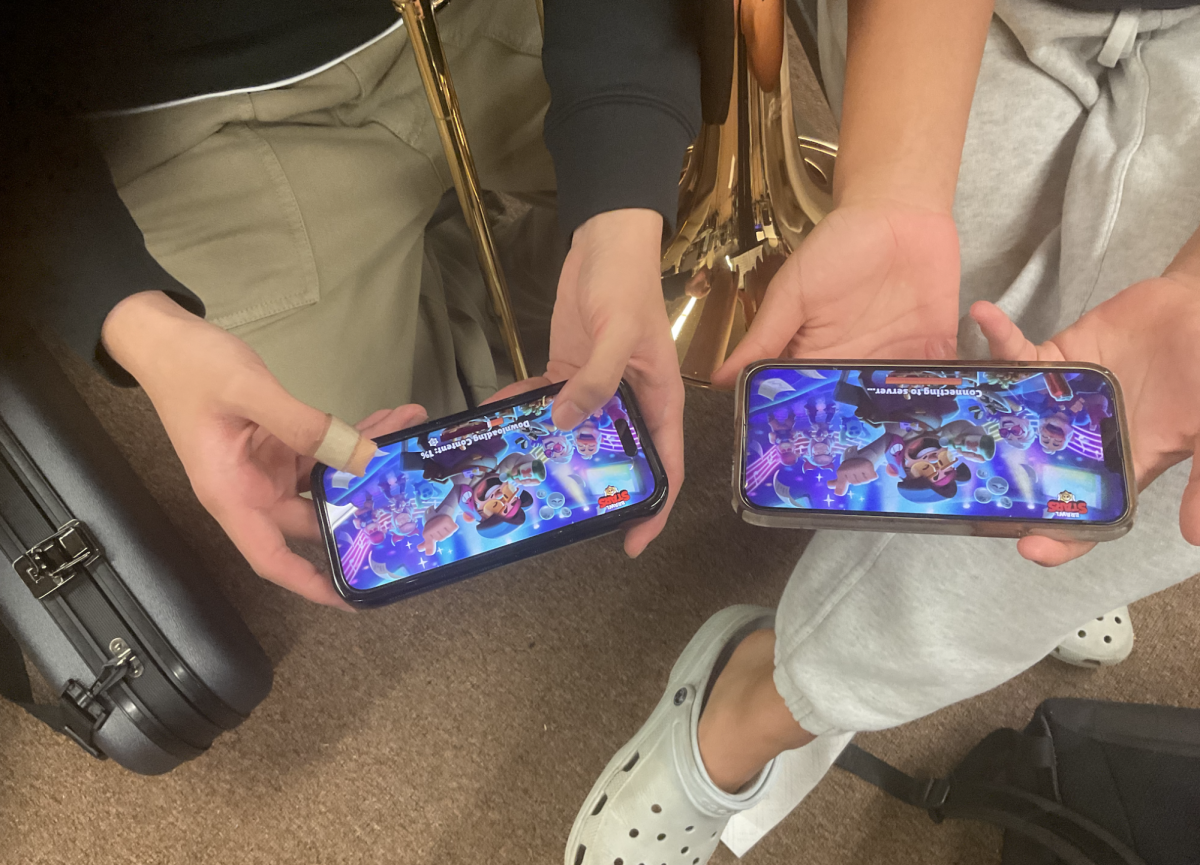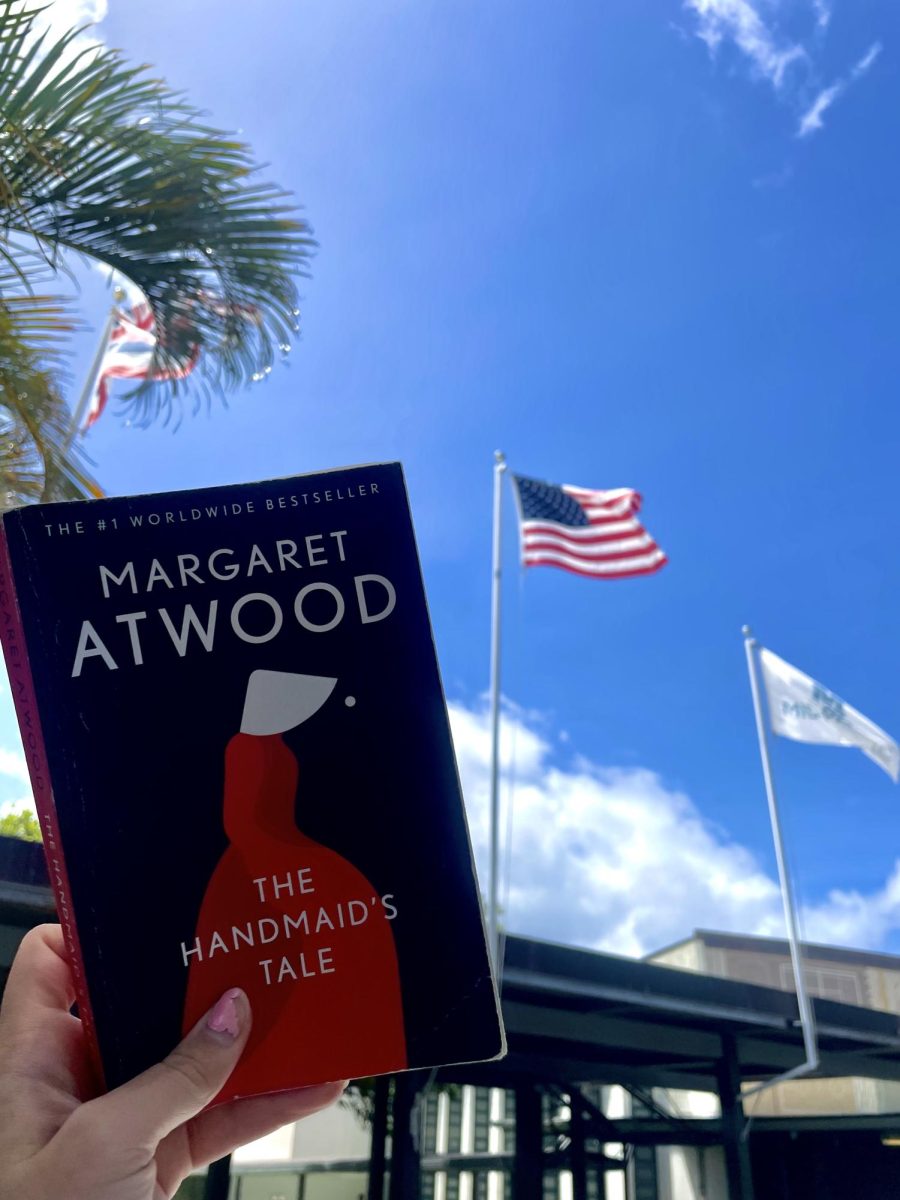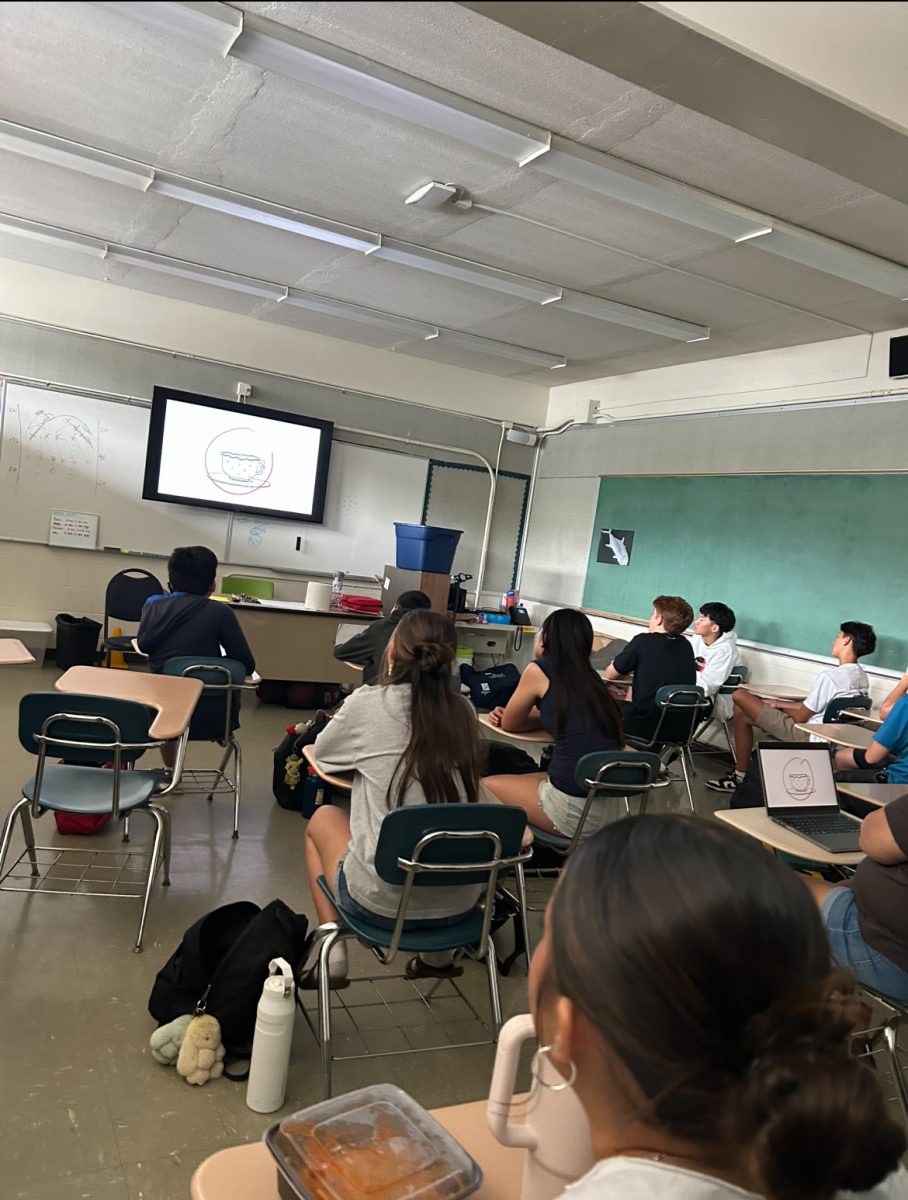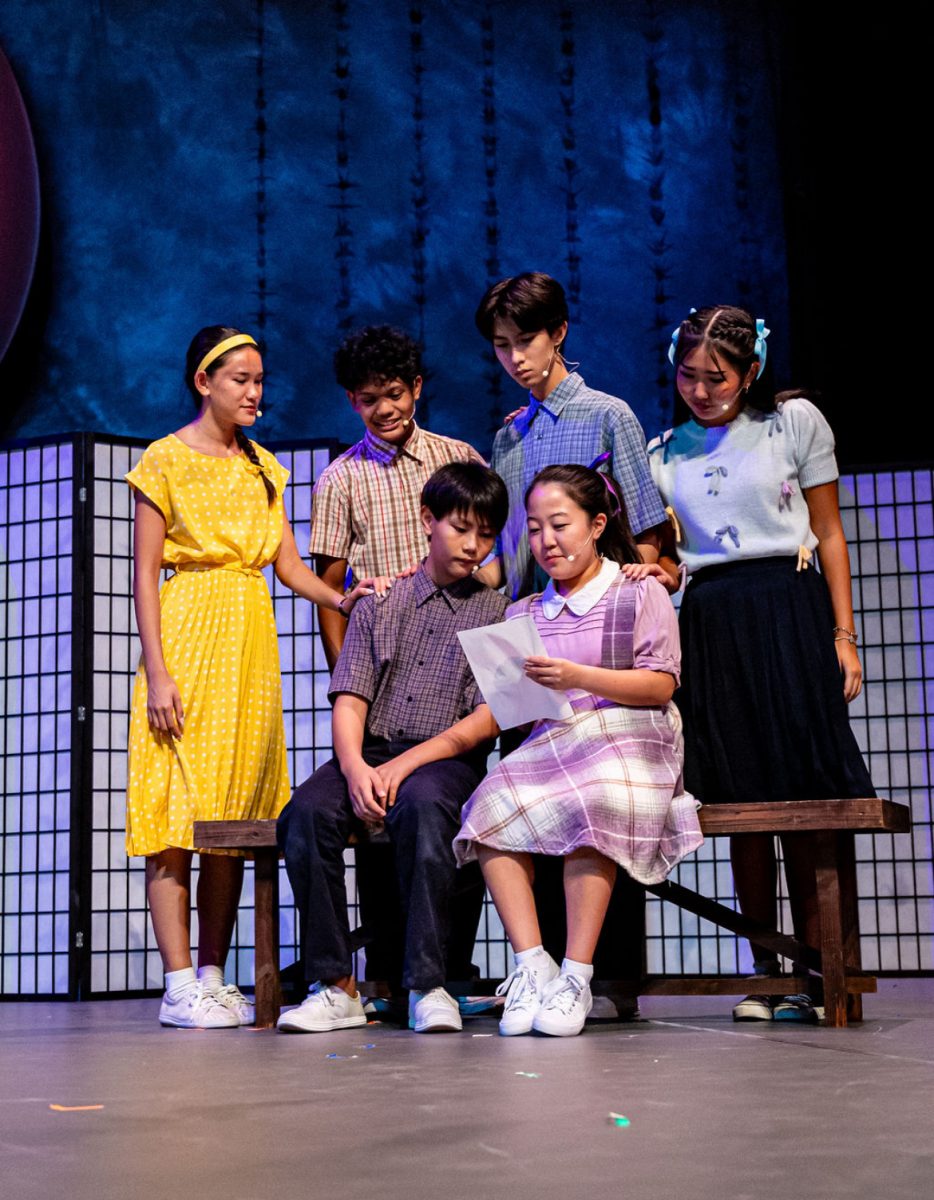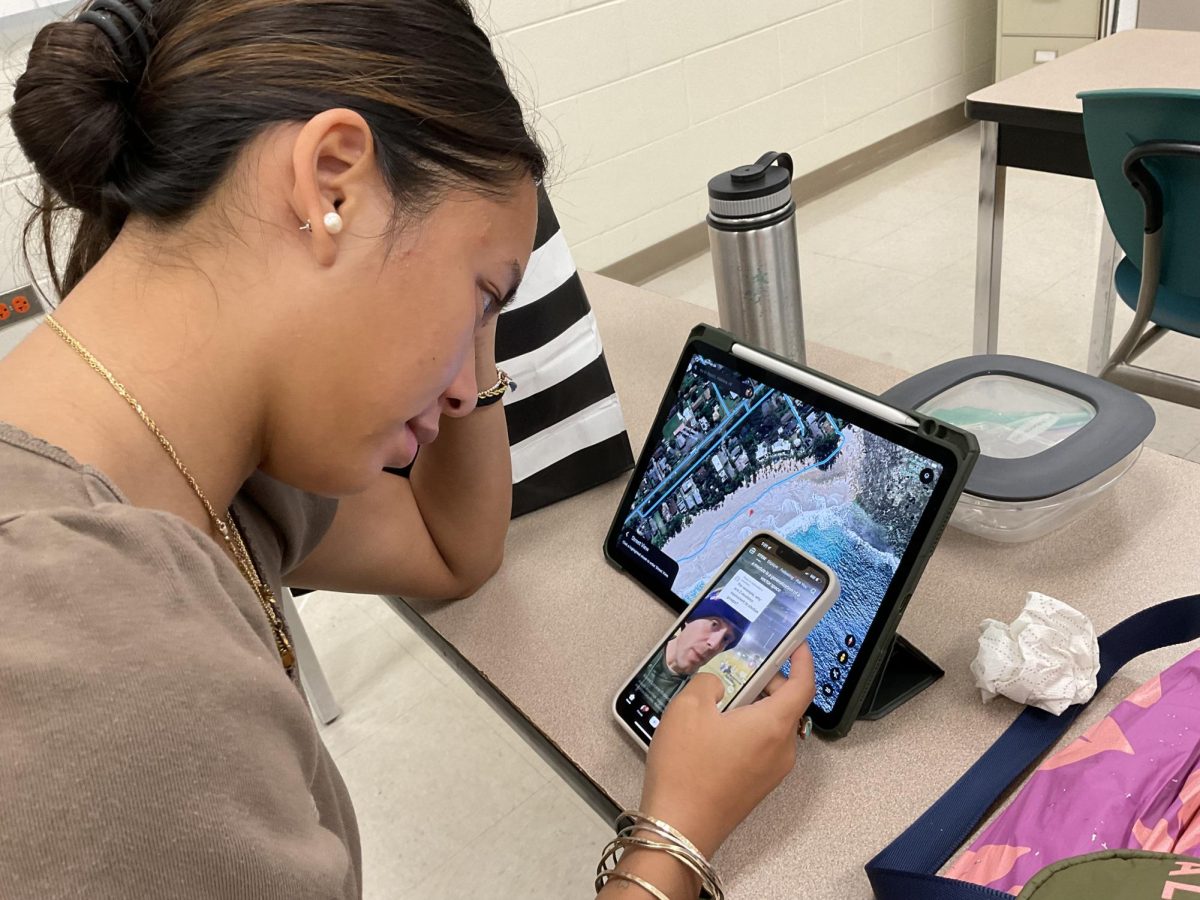With the rise of smartphones, mobile games have become increasingly influential in teenagers’ lives. Look around campus now, and that fact is evident wherever you look. Brawl Stars, Block Blast, and Subway Surfers are all prevalent in the current Mid-Pacific social climate; but how do these mobile games affect students? And are they impairing learning?
While playing mobile games during class is expressly against school rules, Mid-Pacific does allow students to use their mobile devices during free periods, lunch, and office hours.
“[I usually play games during] my free period or in esports,” freshman Erek Elliot said.
Mobile games can give a chance for those who don’t have a lot of free time to unwind and relax in between classes, and it can be a great resource for stressed students.
“I feel like sometimes it can distract you if you’re not getting your priorities straight. You get your priorities straight, you can manage your time, it does, it works,” Elliot said.
Aside from relaxing, some mobile games could even help improve memory and focus with entertaining ways to sharpen your mind.
“I feel like I can focus on something easier as long as it's entertaining to me… [mobile games] help me practice focusing on something,” freshman Jax Shimabukaro said.
Games like these are baked into the culture on campus. Cooperative games such as Brawl Stars have become a big part of how students interact on campus. Playing the same games as your friends helps build community for those who might otherwise be socially isolated at school.
“I get really easily obsessed with things. I feel like having that obsession and other people having the same obsession can make it easier to connect with other people because you guys know the same stuff and it really helps build a friend group,” Shimabukaro said.
Some teachers, however, have raised concerns about how games like these could negatively impact students if taken too far.
“I hear about students having seven to nine screen hours a day. I'm very concerned that this is a mild addiction that we just need to try and cut the habit,” ninth grade math teacher Raymond Lafluer said.
The social aspect of video games can harm learning if not properly regulated. The allure of games with friends as opposed to learning in school is a dangerous resource that could harm student’s experience here at Mid-Pacific.
“If [the game] is a multiplayer one where you wanna play real time with one of your friends, that's probably the most distracting, because now you have peer pressure trying to pull everyone's attention away,” Lafluer said.
“For the most part we can’t control it,” science teacher Sarah Vasconcellos said, “[since] every student has a phone.”
Whether mobile gaming is an issue or not, students are the ones with the responsibility to spend time doing work and excelling in classes. Teachers can only do so much to try and get students to learn, the rest is on us. The next time you pick up your phone when you’re supposed to be doing work, stop yourself and ask, is this the best thing I could be doing right now?
“I have had conversations with students about not starting your day with your phone, taking a break, so before you even get to it, prolong that period of time [without your phone] so you can learn to live without it. It might help you recognize while you are gaming or on your device, that maybe you’ve been on a little too long,” said Vasconcellos.

